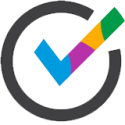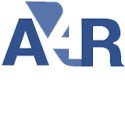Schedule a meeting online
Book sessionKeeping It Close
This year HAS to be the strangest one on record for us.
Yes, it’s been the punch line in memes, multiple monologues from a late night, and more than a few conversations nearly every day, but one trend we’re seeing that very few people are talking about is this:
Americans have – broadly speaking – more cash on hand than they have had in a long time.
For some, it was overtime as “essential” employees, for many, it was stimulus checks combined with lower spending, for others, it was the bump in sales they experienced based on the business they were in. (For example, online retailers have reported up to a 25% increase in sales versus the same time last year.)
This isn’t to say a lot of folks aren’t hurting, but collectively, there is a lot of cash in people’s pockets right now.
So what should you do with it?
In “the good old days,” of course, our parents and grandparents would’ve said to stuff it in a savings account and create more money through interest. With interest rates hovering so close to zero, though, that doesn’t make a lot of sense.
There are two generic answers I’m giving these days when my clients ask what to do with cash reserves, and while they might seem to be at opposite ends of the spectrum, they are actually very closely related.
First, depending on how much cash you have, I might recommend you address any high-interest debt. For years, now, Americans have paid with credit, and the interest on those credit cards consistently hangs over 20%. Paying off all or at least a large portion of it with “free” or low-interest cash (like stimulus check monies) may save you a considerable amount of money over the long run. Depending on the card you pay off, you may also be able to use points or cash rewards to further lower the balance.
Yes, on the one hand, it lowers your cash reserves, but it will increase your credit score, lower the monthly bill you have to pay anyway, and “create” money as a result of paying the debt and using the points.
On the other hand, if you aren’t saddled with a load of credit card debt – or your percentage of credit used is below, say, about 30% of the total allowance – then you might be sitting on cash reserves that aren’t doing anything.
Now, here’s where it can get tricky: how you got those cash reserves – stimulus money, PPP funds, or just working a lot and making money – will have a direct impact on how best to spend them.
Businesses with PPP monies have specific regulations about how they can be spent to qualify the business for forgiveness.
Stimulus monies don’t have as many strings attached, and obviously, income doesn’t have any of them.
So what do you do?
Well, start by understanding your present income – are you generating income normally? More? Less? Does it make sense to buy durable items or put that cash to work in a Roth or through some contribution to your retirement accounts?
Even more importantly, what are the tax consequences of staying liquid versus making investments?
The biggest thing I wanted to share today is this: my team and I are always available to offer you guidance regarding these types of questions, so don’t be a stranger!
All the best-




